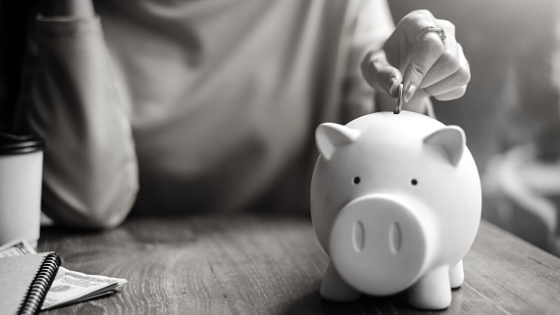If money wasn’t a cause of stress before, then it most likely has become one in the wake of the global pandemic.
COVID-19 has come in like a wrecking ball, dismantling communities and national economies, leaving everyone in its wake counting the costs.
From job loss to high inflation and volatile financial markets across the globe, the consequences of the coronavirus pandemic has made it harder for people to achieve their financial goals and confidence.

No one could have predicted this change in events. However, as we slowly come out the other side of this catastrophe, we are now in a good position to begin looking at ways to rebuild financial confidence and stability in a post-pandemic world.
Review your budget
Now is as great a time as any to review your finances and adjust your budget accordingly.
Some of you may have found that there is less steady income coming in, especially after going through periods of complete lockdowns and business closures. Some people may have experienced job loss or are now forced into casual or part-time work. Whatever the case, setting a budget is a great first step to regaining both confidence and control over your finances.
Grab hold of all your bank statements from the past 6 months, and rebalance your budget to reflect your current financial circumstance.
You may have noticed that some chunks of your spending prior to the pandemic are no longer necessary post-pandemic. For example, if you’re now working from home then costs allocated to fuel, parking, or public transport can now be reallocated to your savings fund. Similarly, many who held a gym membership might realise their home lockdown workouts are just as sufficient, prompting a re-evaluation of whether they need to continue those fortnightly gym payments.
Start saving
According to a recent survey, 52% of Australians over 50 are looking to save more money, and 45.5% are actively trying to spend less money post-COVID-19. This approach is likely one being taken by many households.
However, despite the economic mess caused by COVID-19, many households are finding they actually have more money to put away into their savings.
As lockdowns forced us to stay home, daily expenses like eating out, spending money on activities and transport costs no longer applied, meaning we’ve been left with more income to play with than prior to the pandemic.
The trick is to continue this trend post-pandemic.
Whether it’s using your bank’s automatic savings plan, topping up your retirement fund, or manually putting aside 20% of your pay cheque each month, maintaining your savings will help you move toward your financial goals and will aid you if another crisis ever did happen.
Make use of lower interest rates
Interest rates are at a record low. Take advantage of this unique moment in history and consolidate your high-interest debt by refinancing your existing loan to a cheaper interest rate. You just have to be aware though that you’ll be paying off that extra component of your now new loan over the entire existence of that loan.
Similarly, those taking advantage of low home loan rates need to keep in mind that interest rates will eventually increase, and so too will repayments. Because of this, it’s a wise idea to get advice from a financial advisor to assess whether you can afford the home loan if it goes up.
Invest in your future
The uncertainty that came with the pandemic forced us all to take stock of our source of income. Some of us were lucky enough to keep our jobs while others have been thrown into unemployment and starting from ground-zero.
Now is a great time to start investing in your future and explore ways in which you can boost your income stream. Whether it’s a career change, going back to university, or starting your own business, you can start setting reasonable goals that will help you regain your finances.
Spectators have forecasted that the state of mass unemployment going on globally will drive job interest and availability post-pandemic. Take advantage of these new possibilities and approach this new world order as if it’s a clean slate, with more financial opportunities on the horizon.
Take control of your finances now
As you can see, controlling your finances and maintaining financial confidence post-pandemic relies heavily on tried-and-tested ways of saving money. Preparing a budget, cutting unnecessary costs, and being smarter when it comes to saving are all habits you can carry with you in the preceding months and years.
Maintaining a long-term perspective can also help to keep your current spending habits in check and prepare you for unexpected events in the future.
One thing that we all need to take with us from this pandemic is to continue maintaining an emergency relief fund. Pandemic or not, having that financial security to back you up will maintain peace of mind and will give you one less thing to stress about when times are tough.






















